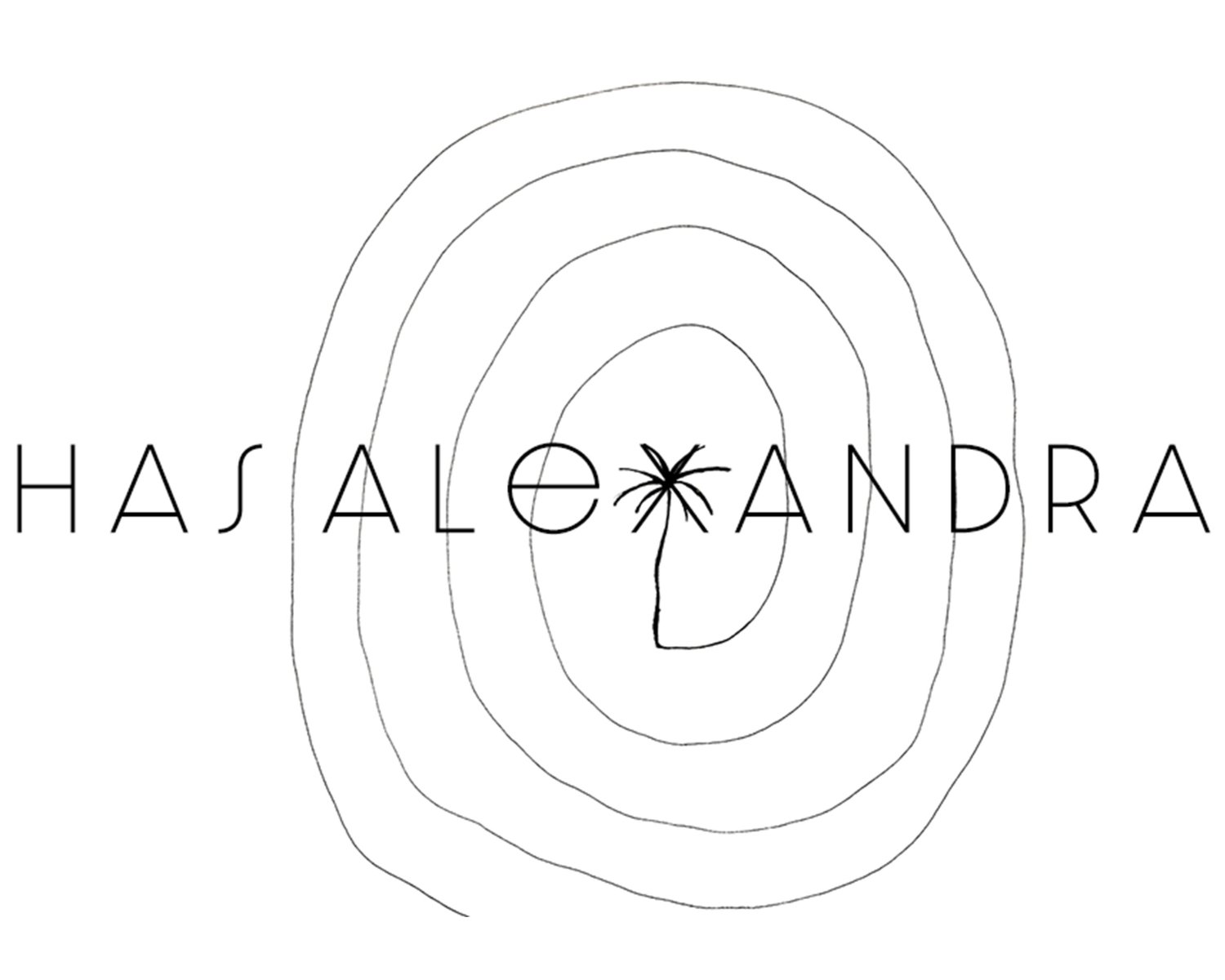
kristine
armeniA
my name is kristine Najarian
[kris-ti-neh na-jar-yan]
my divine roots are from armenia.
i identify as armenian-american.
i was born in yerevan, armenia. i’ve been living in los angeles, california since 1991.



ROOTS
both of my parents were born in yerevan, armenia. they planted new roots in los angeles, ca, usa together because they were on a quest to provide a better life for my siblings and me. living conditions in armenia were dire – the soviet union was on the brink of collapse, armenia was recovering from the spitak earthquake, and amidst [another] war with azerbaijan. my mom didn’t want to come and leave her family, but my dad’s sister was already here, so together, they took the leap.

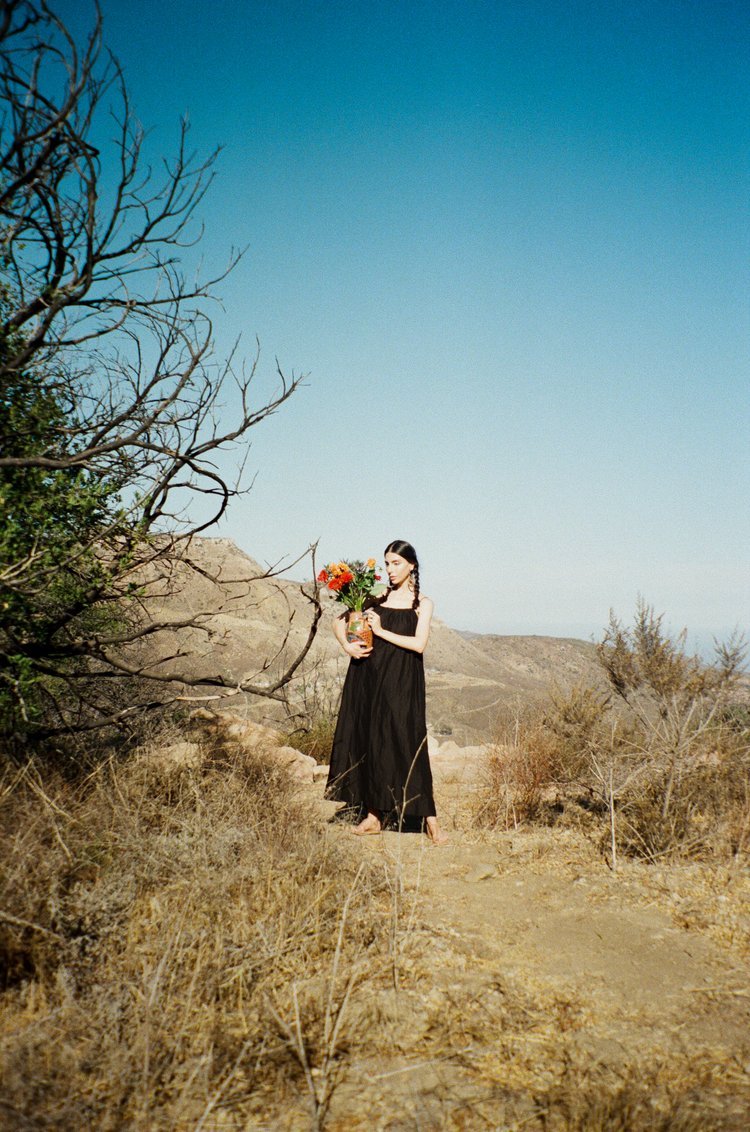
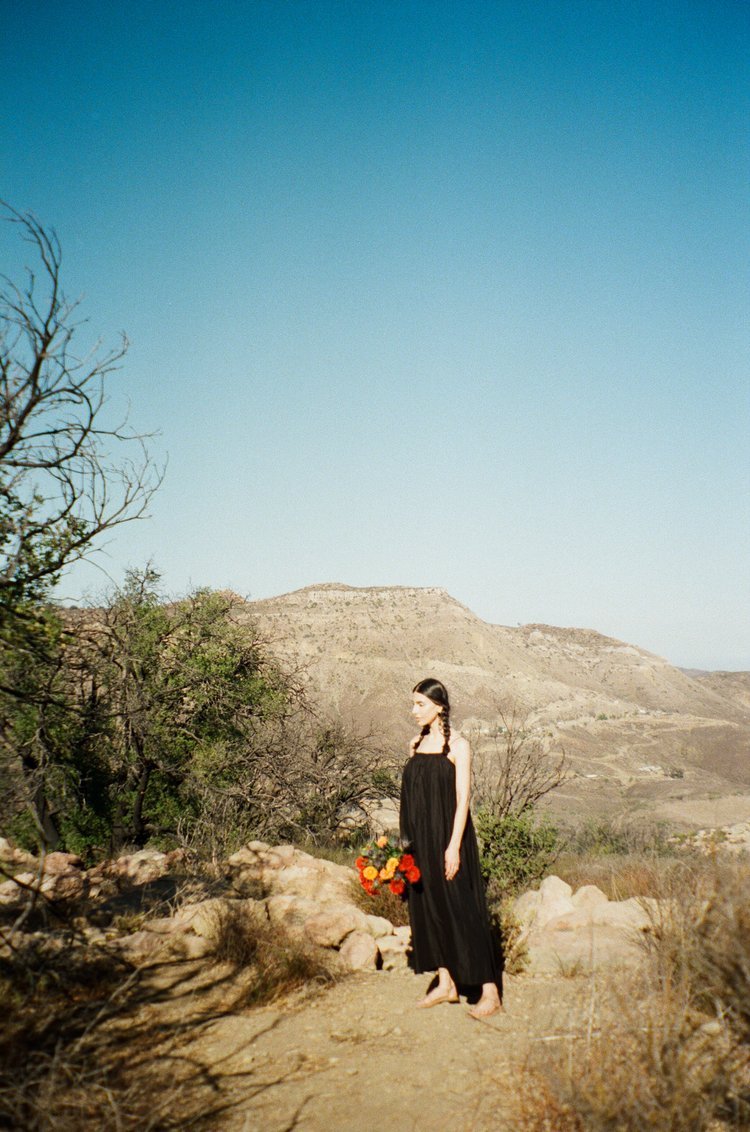
have you visited the land?
yes - the last time i visited was summer 2022.
do you speak the language?
Yes I’m fluent in Armenian, I speak with an Eastern Dialect.
my grandpa taught me to read and write in armenian.
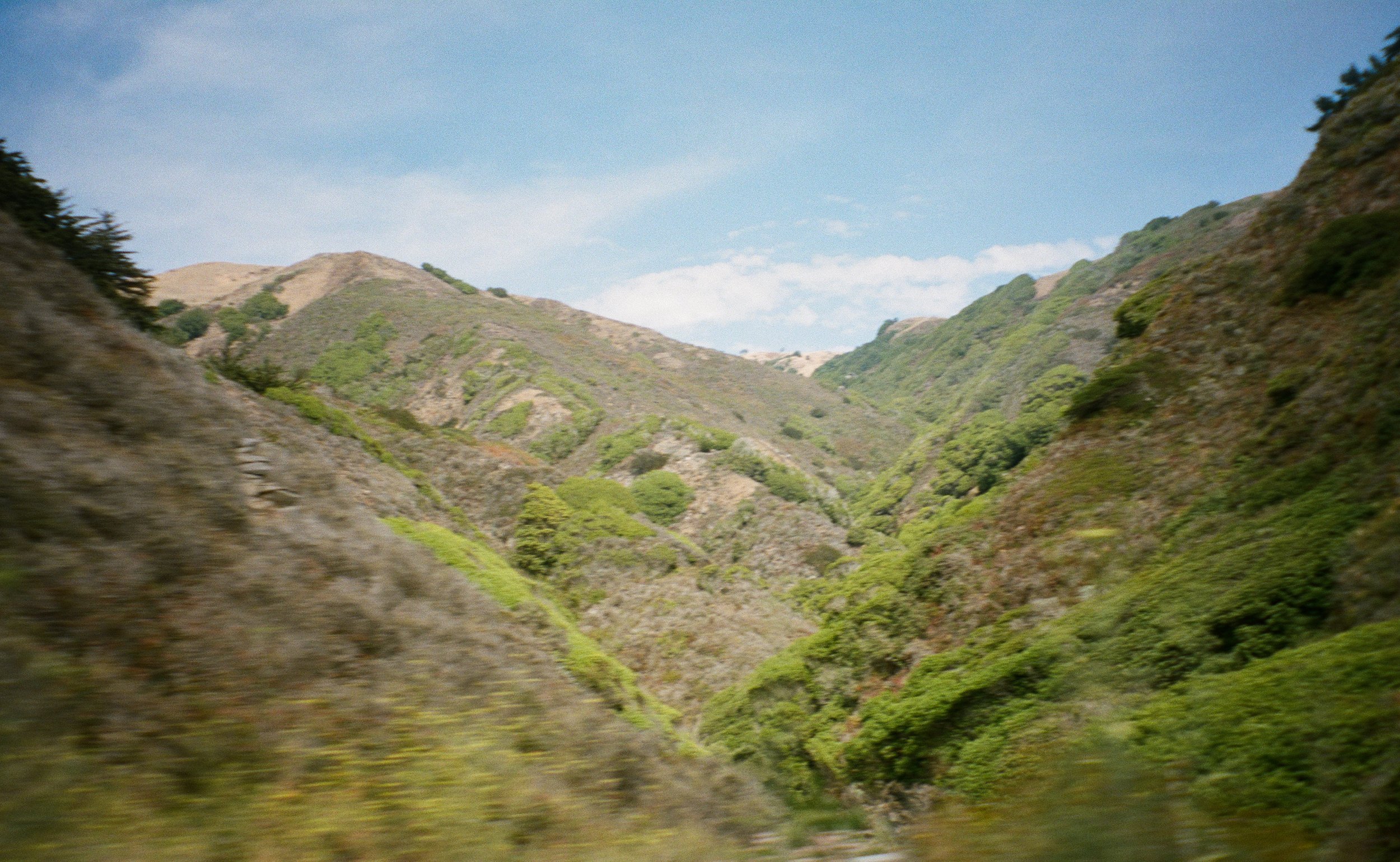
we shot in malibu, california — why does that setting feel like home for you?
armenia is a mountainous region. everytime i drive through malibu, especially through las virgenes and farther in, the windy road surrounded by mountains feels like a visual glimpse of armenia. i immediately feel at home.
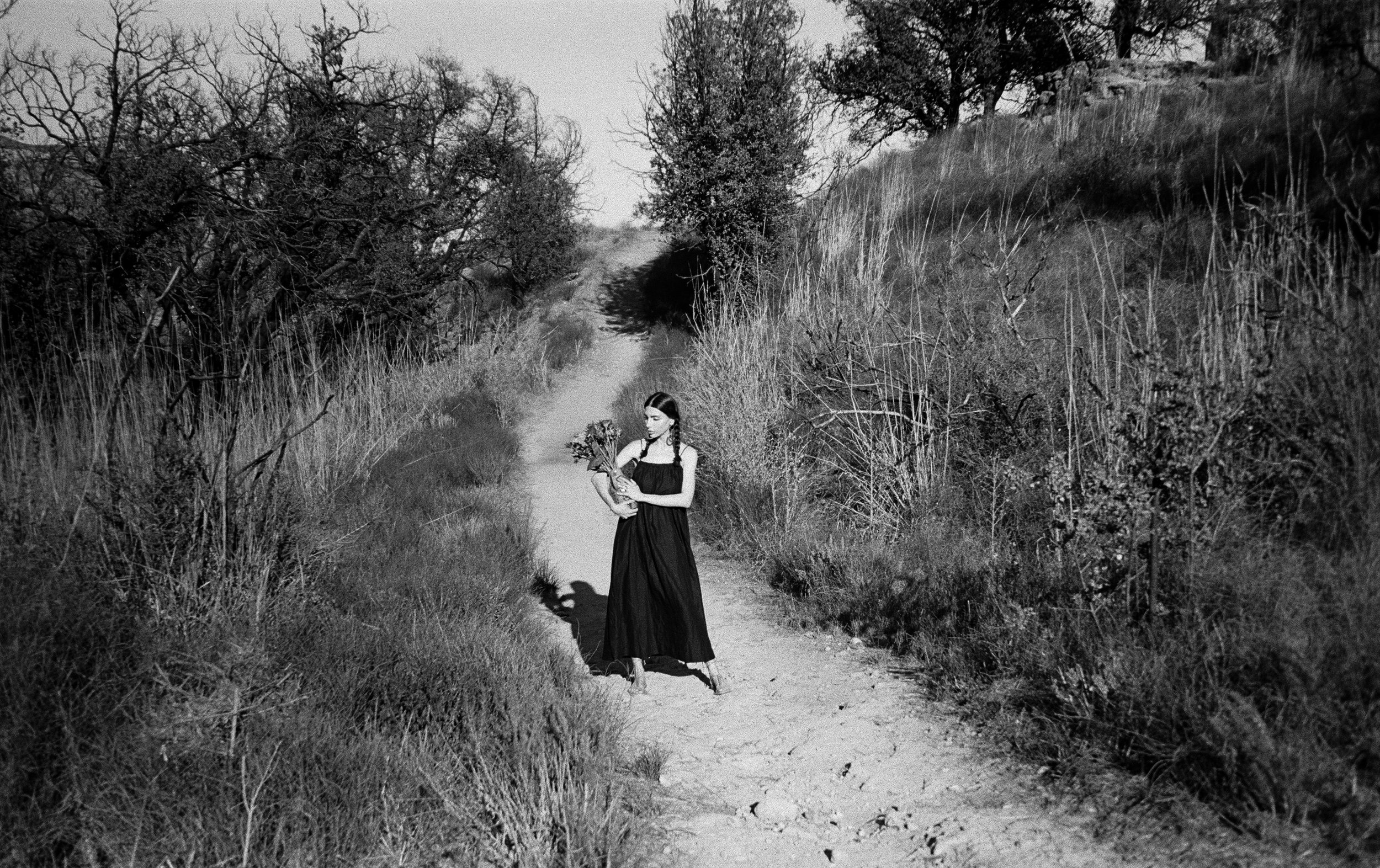
what do you love most about la?
how diverse it is, so many rich cultures to learn from
what don’t you love about la?
the diversity also creates division, instead of learning from other cultures it can feel somewhat disconnected.


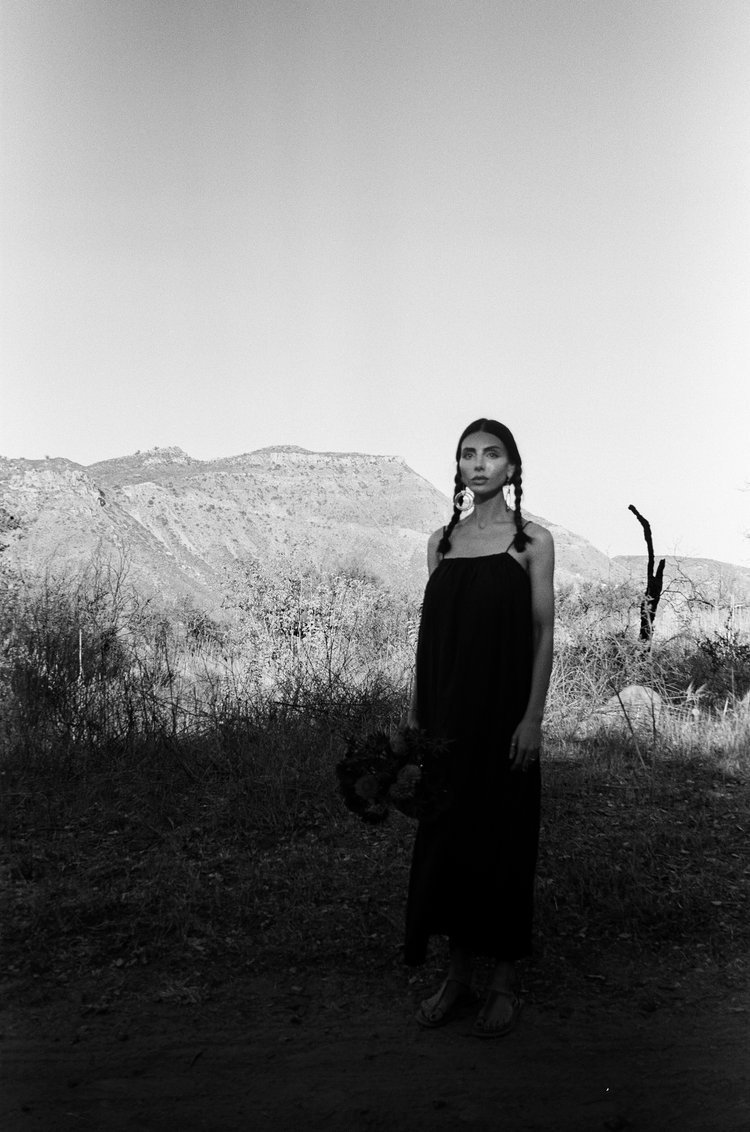
how has your experience in la affected your worldview?
though i have been living here since i was a child, my experience in la was that of an immigrant.
living in la has made me more aware of the various belief systems, religions and ideologies that exist. while i was always aware of the diversity of cultures around me (which helped make sure i didn’t completely feel like an outcast) coming from an immigrant family in la, had its own challenges. i definitely felt like i was different.
i grew up sheltered, my parents were strict — i had a curfew, spoke armenian at home, went to dance at an armenian studio, went to armenian church on sundays. the push and pull eventually made me rebel as a teen. i went to public school, where luckily i had some fellow armenians to relate to, but fitting in in general was still a struggle.
at school, i felt like i was supposed to “be american,” then at home i was supposed to “be armenian.” growing up, it was challenging trying to accept that my family was different from the families of the "white" friends i had in school, and just trying to "belong" in general.
but as i got older, i learned to accept that i was different and i was proud of it. i’m definitely more patriotic now and appreciative to my parents now for instilling the armenian culture in me.

as an immigrant, i’m also thankful to live in america. i have opportunities here that i may not have had in armenia, and i respect that. we are very conscious of our privilege [here in the diaspora].
my entire experience as an immigrant growing up in la is the reason why i have so much empathy for what is constantly happening around the world — we understand intergenerational trauma and families being torn apart, not because they wanted to but because they’re striving to provide a better life for their family.
what are examples of intergenerational resilience in your culture?
preservation of our language and culture from generation to generation, despite all of the trauma [from war and genocide] along with our need to continue to fight for justice, despite how much time has passed.
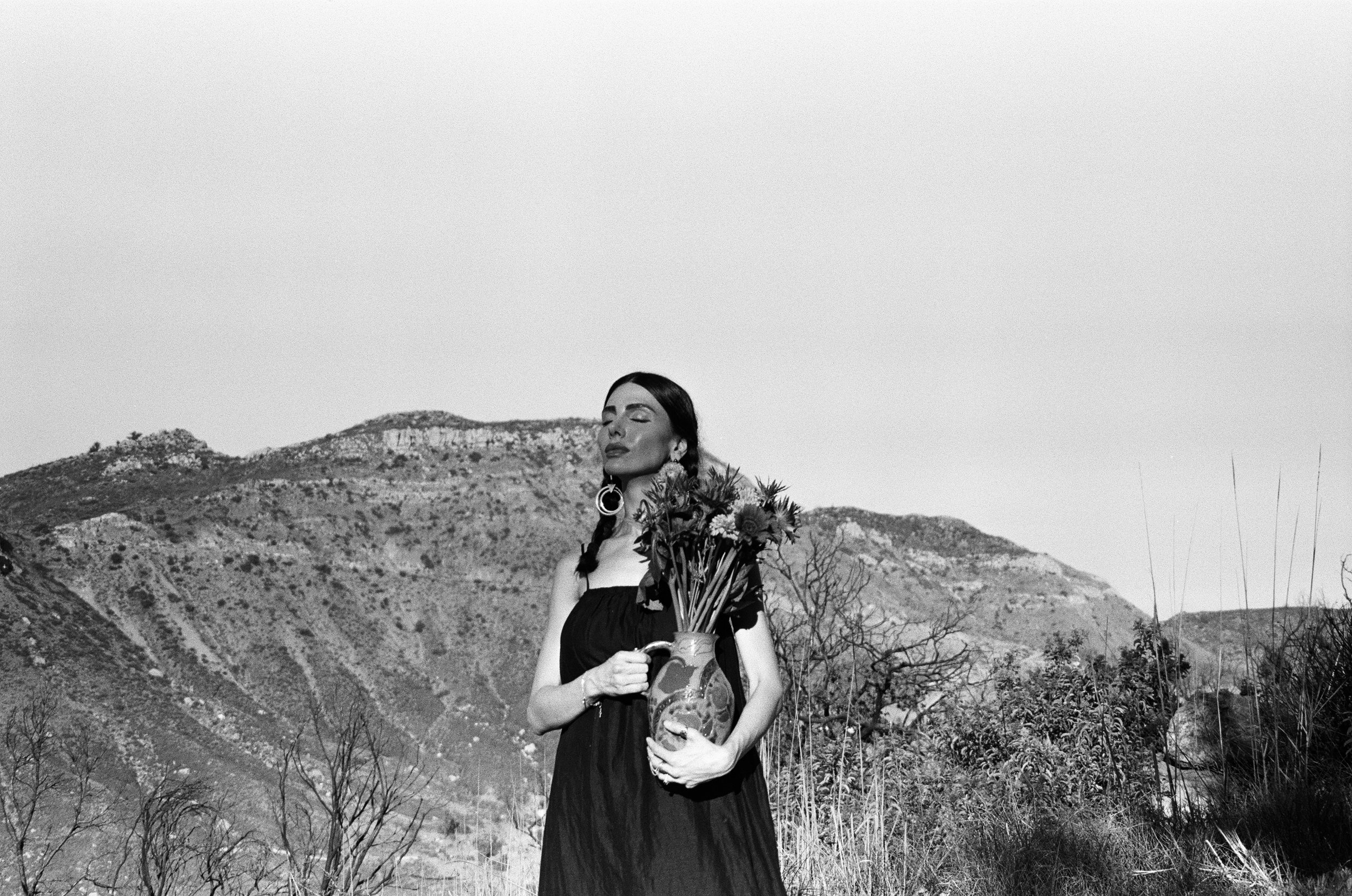
what are examples of intergenerational trauma in your culture?
the lack of accountability for the genocide has fostered anger, grief, and extreme hate for the side responsible for inflicting the pain and ptsd that's passed down from generation to generation.
armenians can be weary of trusting others because of how many times we’ve been taken advantage of throughout history. i guess division is a survival mechanism rooted in intergenerational trauma. we’re very open and welcoming as a culture, but worried about being taken advantage of.
even for armenians in la, we self-segregate based on different types of armenians (armenians from armenia, lebanese-armenians, persian-armenians, russian-armenians, iraqi-armenians, syrian-armenians etc).
during the 2020 artsakh war, the only silver lining was that no matter what type of armenians, we were all acting as one and fighting as one when it comes to fighting against our oppressors whether it is war or genocide, we are one.
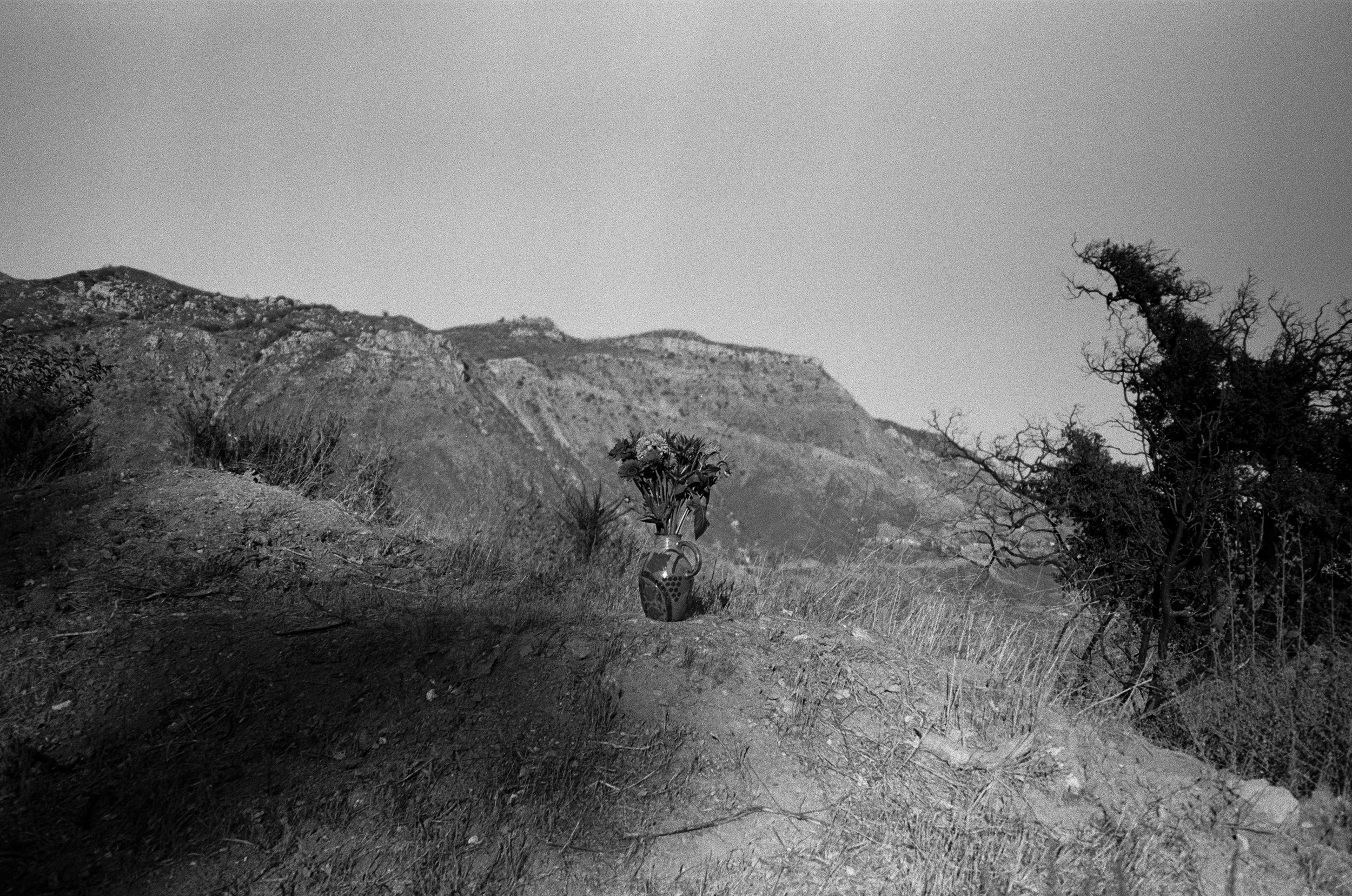
how do you break the cycle?
this is still something i'm trying to figure out myself, since it seems like history keeps repeating itself.
unfortunately, the 2020 artsakh war triggered that intergenerational trauma for armenians all around the globe. it was the first time that i felt like, though i was miles away in america, away from the physical war, i felt like i was living through what my ancestors went through during the armenian genocide. being exposed to triggering content, screaming to get our stories heard, but the rest of the world is too busy to care or help.
in order to heal this trauma, we need our stories to be heard. we need acknowledgment of the pain and suffering, apology, and reparations. not gaslighting, denial and revisionist history — which is what we are currently dealing with from turks and azeris.
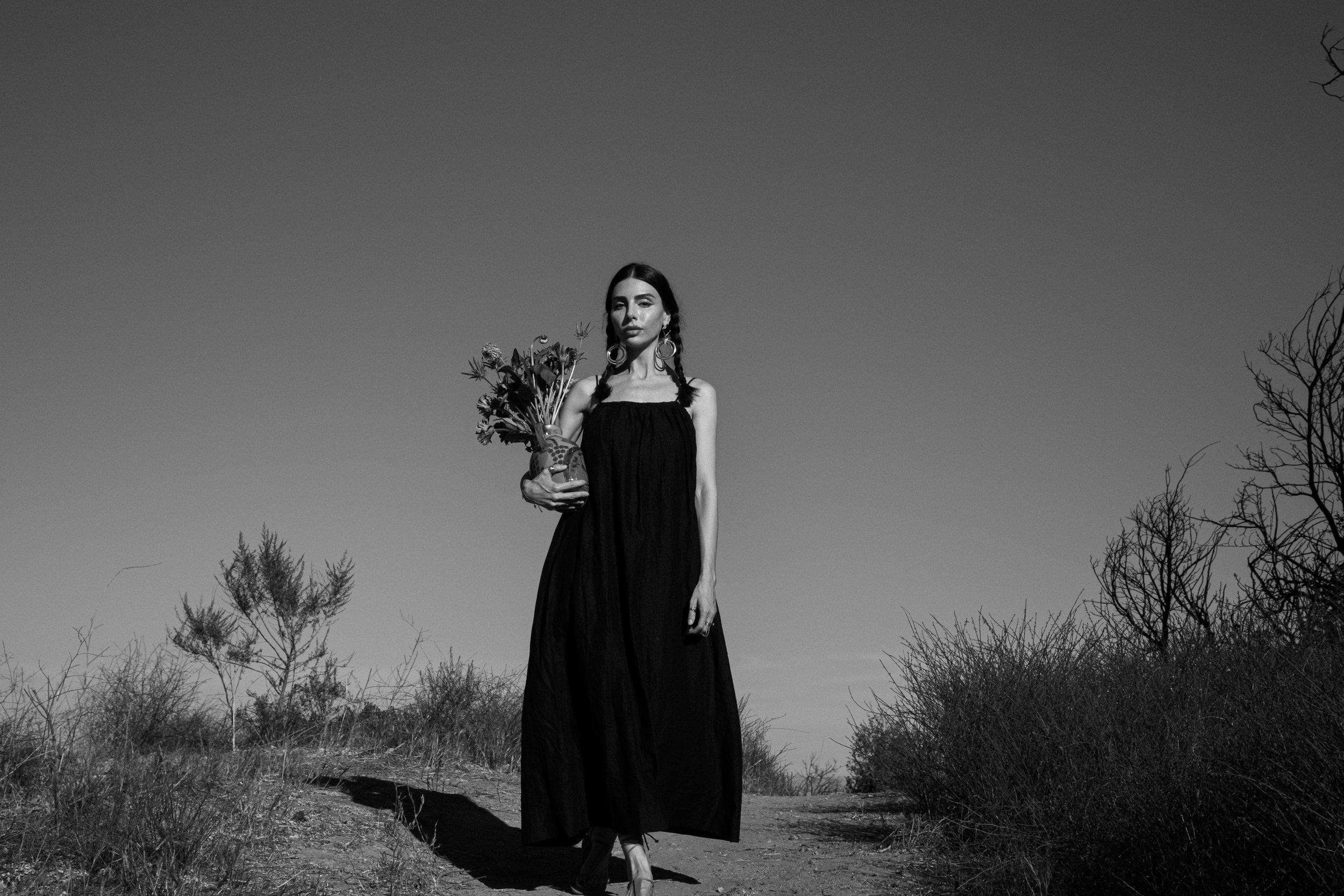
how do you honor your roots / culture?
i’m really passionate about honoring my roots and culture through my work. i try my best to use my resources, knowledge, and skills to help highlight creative talent in armenia, so they can do the same thing and cultivate their growth and success.
i want to find ways to make armenia economically valuable to the world so people care about what's happening there. the 2020 artsakh war taught me that unless it’s affecting people’s pockets, they don’t care.
it's important to me to support the economy through directly or indirectly building a bridge between armenia and us fashion – even through a small thing like buying from a rising armenian designer / getting the us consumer to buy goods made in armenia.
kristine is a creative in fashion & beauty explore her work at
@krischerie
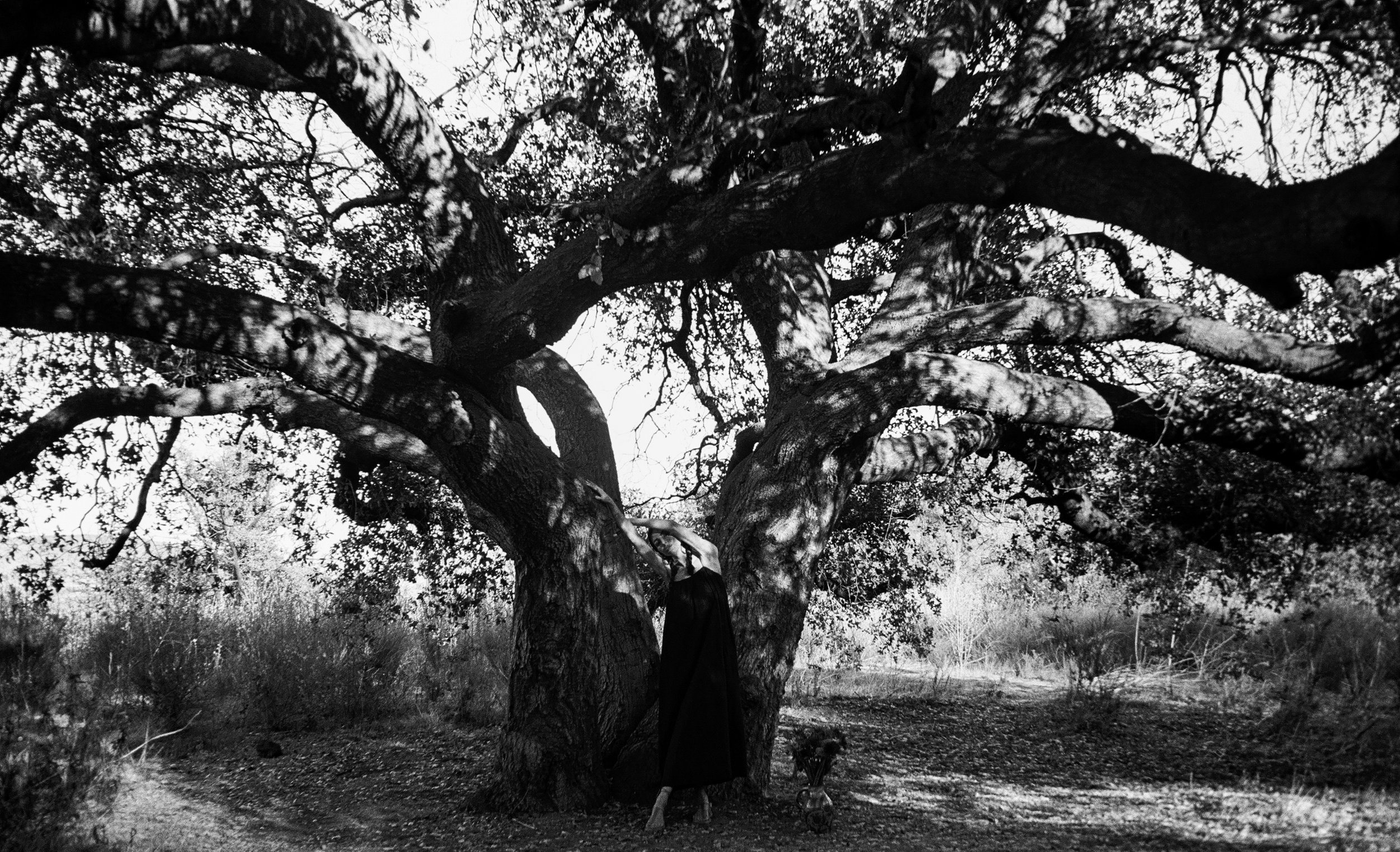
places in the local community that feel like home:
mini kabob in glendale, hole in the wall family owned restaurant with authentic homemade armenian cooking. i love the chicken plate with rice and hummus and ikra (eggplant caviar).
people in the online community you are inspired by
pommie – a new online ecommerce boutique that offers a curation of luxury, ready to wear armenian brands made in armenia, to the american market.
kooyrigs – a nonprofit organization aimed at helping women in armenia and providing aid to families in artsakh & armenia
miaseen – a nonprofit aimed at facilitating collaboration between armenian diasporans, armenia and their global supporters.
